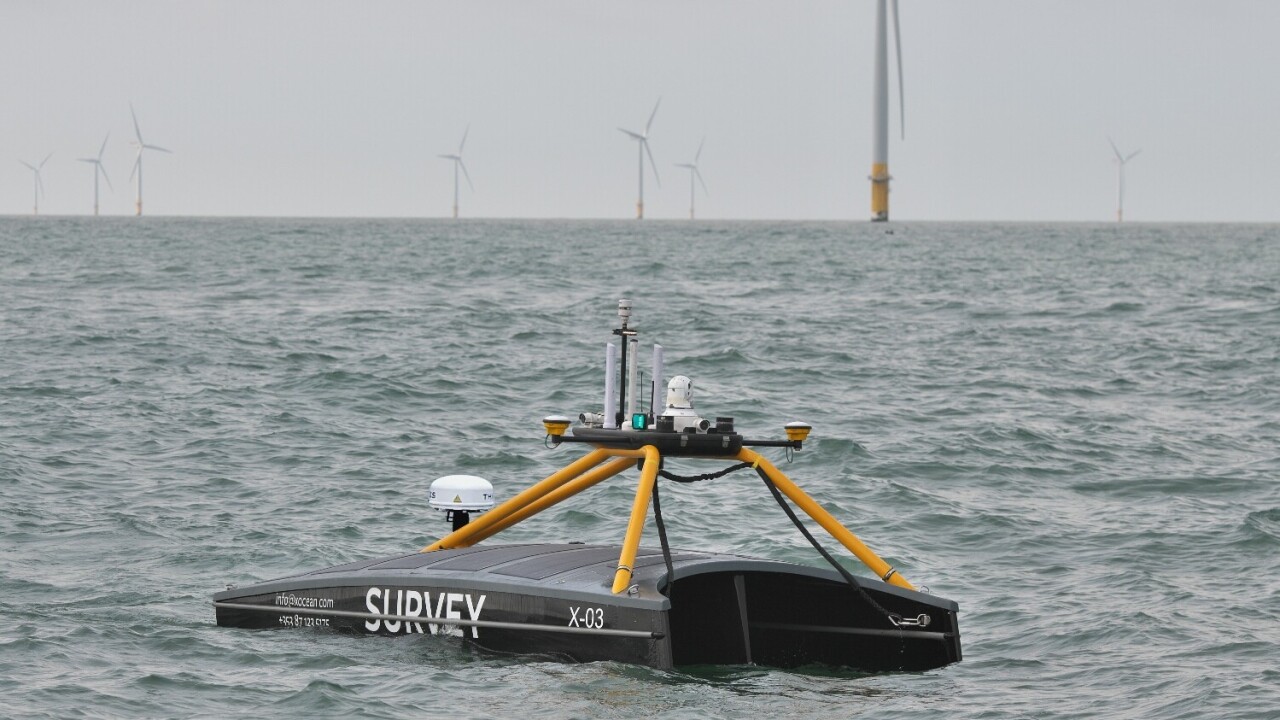
XOcean has secured $115mn to expand its fleet of uncrewed surface vessels.
Founded in 2017 by former CEO of Open Hydro James Ives, XOcean builds autonomous boats that zip around the ocean, using sensors to gather large amounts of data on everything from subsurface structures to the temperature and clarity of the seawater.
The bots — which are about the size of a small car — then relay this information in real time to a ground team via satellite link, who use it to compile surveys, maps, or reports. This data is especially helpful for ocean research. It’s also of great value to companies in offshore wind, oil and gas, and carbon capture.
XOcean’s funding round was led by Big Oil-backed Climate Investment and SGS, an American VC focused on clean energy. The other key investors were Morgan Stanley’s 1GT fund and an affiliate of the Crown Family’s CC Industries.
XOcean also raised $30mn back in June, bringing its total funding to date to $180mn. Although it has not publicly disclosed its valuation, Dealroom puts it north of $500mn.
Whatever the precise figure, it’s certainly a lot of cash, especially for a company building tiny little boats that gather data that we’ve been able to collect through other methods for decades.
However, the real added value is that XOcean can gather this data in a way that’s “safer, cost-effective, and ultra-low-impact,” says Ives.
“Traditionally, mapping the ocean floor and collecting marine data requires a ship with a large crew working for extended periods at sea,” Ives told TNW. “When a customer needs data, it can be months before a traditional supplier has availability and costs are uncontrolled.”
Now, people who need this data can rely on a small, low-energy autonomous vessel to do the hard work.
XOcean also promises that its vessels are greener. The company estimates that a fleet of its drones emit just 0.1% of the CO2 of the equivalent surveying boats with a crew on board.
And it’s a pitch that seems to be paying off, not just in VC cash, but in real-world deployments. XOCEAN already works with offshore giants including SSE Renewables, Ørsted, BP, and Shell. The scaleup has delivered data solutions to commercial and government clients in over 23 territories, it said.
As we build more and more infrastructures out at sea, it’s no surprise that we’re seeing new technology hopping on board. A second example comes from Zelim, based out of Edinburgh, which is developing AI-powered person-overboard detection that aims to increase survival rates. Meanwhile, another British company, Beam, has built an underwater robot for inspecting offshore wind farms.
Get the TNW newsletter
Get the most important tech news in your inbox each week.




